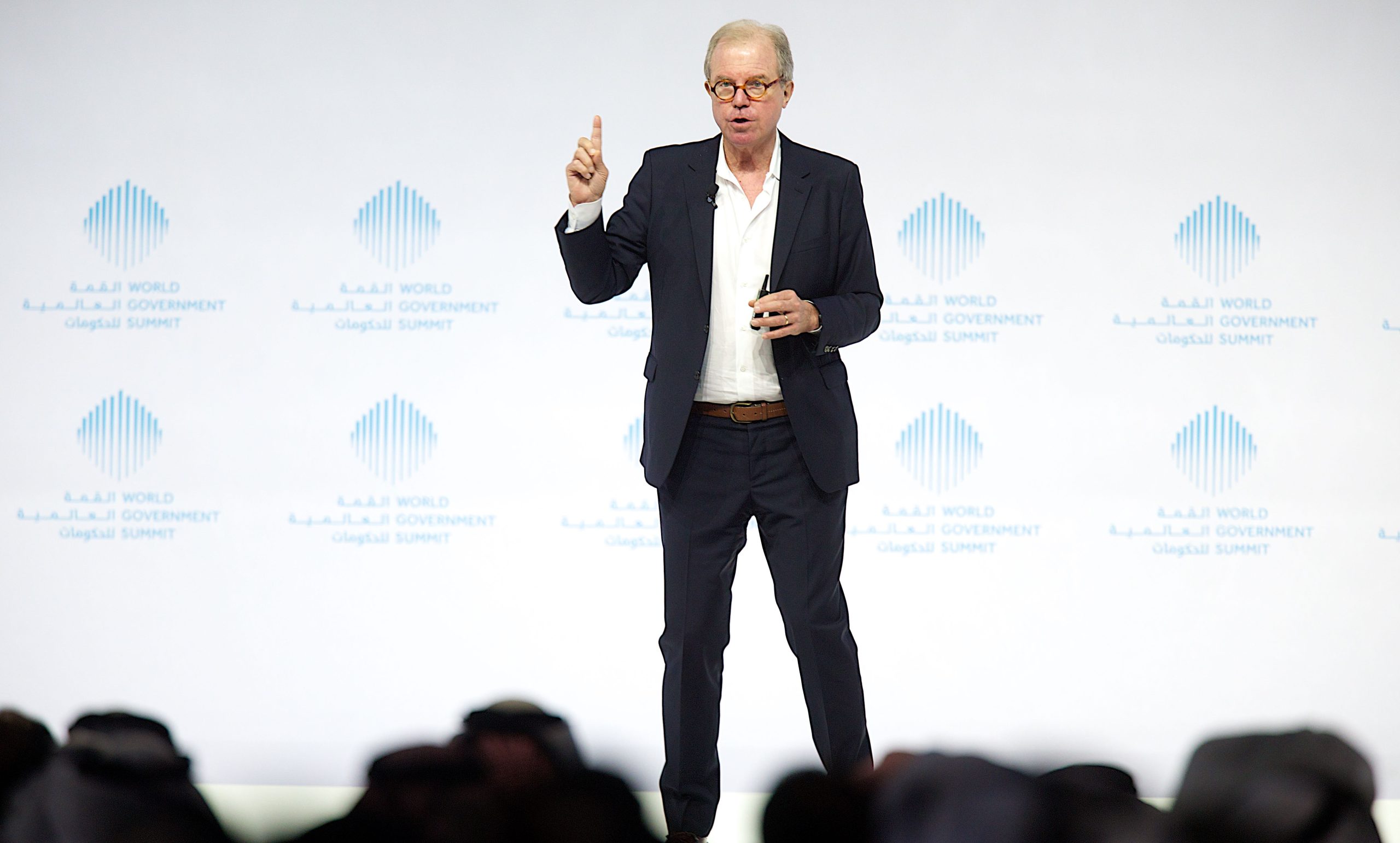Economy
Internet is human right, must be free for all: Nicholas Negroponte
Professor Nicholas Negroponte, a Greek American founder of the Massachusetts Institute of Technology’s Media Lab, addressed the audience on the second day of the 4th World Government Summit (WGS 2016) through a session entitled “Future of The Future.”

“My belief is that you do not have to measure the impact of what you do…do things that are self-evident and big,” remarked, renowned visionary Professor Negroponte reiterating his longstanding belief that the internet should be free for everyone, just as street lights and libraries.
Professor Nicholas Negroponte, a Greek American founder of the Massachusetts Institute of Technology’s Media Lab, addressed the audience on the second day of the 4th World Government Summit (WGS 2016) through a session entitled “Future of The Future.”
In his address, he remained critical of governments and private entities that rely on market forces and stressed the importance of shared responsibility, or what he dubbed as ‘civil society.’ The professor claimed, “It’s time to rethinks over certain things.”
Emphasizing that capitalism has hurt those who believe the concept to be the core element, Professor Negroponte added that the mission for doing certain deeds and the market are separate. “Doing good and producing positive outcomes for society need not be input into the equation,” he noted.
A prominent figure for challenging the current private education system, the professor shed light on the unfortunate reality of governments and private entities that put a price on education – which should fundamentally be free and available to all – and creates unnecessary competition.
The core idea Professor Negroponte highlighted was that because nations remain at such a meta-level and stay fixated on nationalism, they fail to see the weakened global civic responsibility. Putting all this behind, the key to an equal opportunity to learning and giving all people the basic human rights is prompting free Internet.
He added, “The future is coming, but it won’t be evenly distributed.” To transform this inequality, the professor suggested low-orbit satellites that would cost just US$10 billion – including 10 years of operational costs. The Internet access is such an essential part of learning that to a certain extent, it is a human right. The low-orbit satellites will not only be orbiting outside the jurisdiction of countries, but provide web access even for people living in remote parts of the world. Professor Negroponte stressed that if nations and the United Nations are dedicated to promoting human rights, then certainly this kind of altruistic scheme is needed now.
The World Government Summit has attracted more than 3,000 personalities from over 125 countries, and 125 speakers in over 70 sessions. The attendees include VIPs and senior experts from the public and private sectors globally, ministers, decision makers, CEOs, innovators, officials, experts, entrepreneurs, academics, and university students. A number of initiatives, reports and studies are set to be launched during the summit and throughout the year. The summit runs from February 8 – 10, 2016 at the Madinat Jumeirah in Dubai.
-

 Banking & Finance2 months ago
Banking & Finance2 months agoOman Oil Marketing Company Concludes Its Annual Health, Safety, Environment, and Quality Week, Reaffirming People and Safety as a Top Priority
-

 Economy2 months ago
Economy2 months agoPrime Minister of India Narendra Modi to Visit the Sultanate of Oman on 17-18 December
-

 News2 months ago
News2 months agoJamal Ahmed Al Harthy Honoured as ‘Pioneer in Youth Empowerment through Education and Sport’ at CSR Summit & Awards 2025
-

 Economy2 months ago
Economy2 months agoOman’s Net Wealth Reaches $300 Billion in 2024, Poised for Steady Growth
-

 News2 months ago
News2 months agoIHE Launches Eicher Pro League of Trucks & Buses in Oman
-

 News2 months ago
News2 months agoLiva Insurance Honored with ‘Insurer of the Year’ Award for 2025
-

 OER Magazines1 month ago
OER Magazines1 month agoOER, December 2025
-

 News1 month ago
News1 month agoAI Security Conference 2025 Hosted by Securado Highlights the Changing Cybersecurity Landscape































You must be logged in to post a comment Login